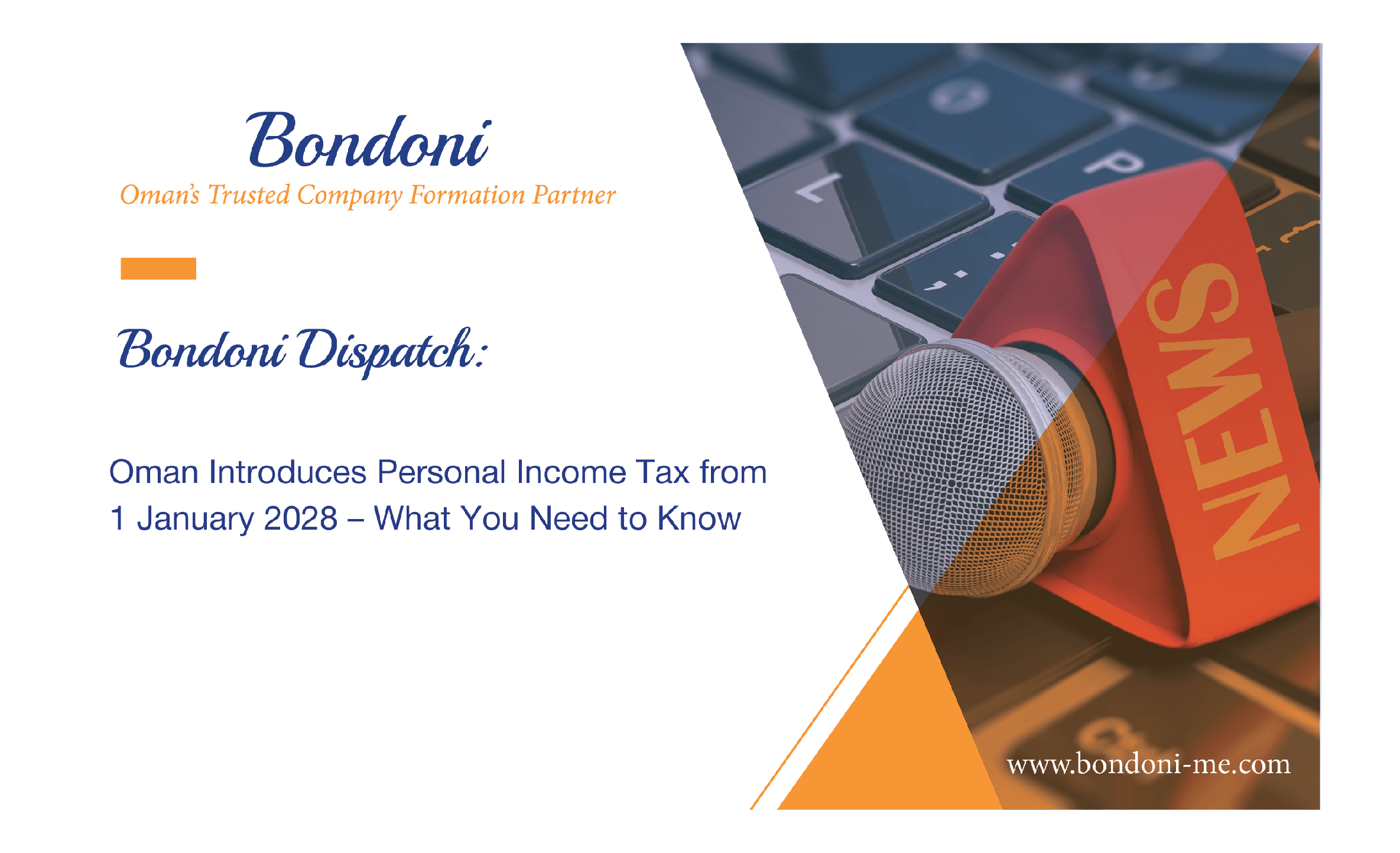Personal Income Tax (PIT) decree, introducing a 5% Personal Income Tax, effective 1 January 2028. This makes Oman the first GCC country to formally announce a personal income tax regime.
The objective of the new tax law is to strengthen Oman’s fiscal sustainability, align with Vision 2040, and reinforce social protection mechanisms—without burdening lower income groups. Notably, 99% of the population will remain unaffected.
Key Highlights:
- Tax Rate: 5% on natural persons (Omani citizens, residents, and non-residents earning income from Oman)
- Threshold: Applies only to individuals earning over OMR 42,000 (approx. USD 109,200) annually
- Taxable Income Sources: Salaries, freelance income, rent, interest, dividends, pensions, asset disposals, royalties, and more
- Tax Filing: The tax must be filed annually via the tax authority’s electronic form within the 6 months of the end of the tax year i.e., by 30th
- Penalty: Late payment of tax can lead to a penalty of 1% of the unpaid amount.
- Tax Return: Details to include on a tax return are gross income, net income, taxable income, tax due and payable.
Exemptions and Deductions:
Article 25 lists 16 PIT-exempt income categories, including (abridged):
- Foreign Earnings: Income earned abroad by Omani tax residents, plus income earned for 18 months after a change of residency status.
- Education & Healthcare Costs: Qualifying expenses for the taxpayer and dependents.
- Housing Relief: Income from a declared primary residence (≥ 2 years) and a one-time lifetime capital-gain exemption on a secondary home.
- Investment Income: Returns from Government of Oman certificates, bonds and notes.
- Social Contributions: Zakat & approved charitable donations (up to 5 % of gross income).
- IP Income: Royalties from industrial property rights for five years after registration.
- Deductions: Education, healthcare, housing loan interest, business expenses for freelancers/landlords, etc.)
What This Means for You – Bondoni Insights
At Bondoni, we understand the introduction of a personal income tax is a major shift so we have reviewed the guidance and actions that professional accountants are advising companies and individuals and have summarized them below:
For Employers:
- Review employment contracts, salary structures, and benefit packages in light of potential tax implications
- Ensure payroll systems are equipped to handle withholding and reporting obligations ahead of 2028
- Implement a system for withholding income tax for employees’ wages, pensions, end of service benefits, and board remuneration.
- Reevaluate your talent acquisition and retention strategies, especially for senior-level roles that may fall within the tax bracket.
- Implementing a system regarding the submission of tax returns on behalf of employees who earn income solely from salaries, pensions or board remuneration, upon the employee’s request.
For Individuals:
- Assess your income streams and financial structure for tax planning and compliance readiness
- Understand how deductions and exemptions apply to you, especially if you are a freelancer, landlord, or investor
If you require more in-depth information, please seek advice from your local accountants.
We are closely monitoring the upcoming executive regulations and will keep you informed as they are released.
